The 2025 Belt and Road International Summer School of Molecular Medicine was Successfully Held at Shenzhen University Medical School
The 2025 Belt and Road International Summer School of Molecular Medicine was successfully held at Shenzhen University Medical School’s Lihu Campus from July 14 to 19, 2025. More than 30 students from Kazakhstan, Vietnam, and Georgia took part in a weeklong academic exchange. Jointly organized by Shenzhen University Medical School and the Chinese Society for Cell Biology, and built upon the Shenzhen–Almaty joint Laboratory for Frontiers in Medical Sciences (salFMS), officially launched in October 2024, the program promotes cooperation and exchange between China and Belt and Road countries, drives scientific and technological innovation, cultivates international talent, and enhances China’s global influence in medical research. Aligned with national strategy and global health development goals, it provides a strong platform for advancing medical science, fostering regional cooperation, and building a “health community.”
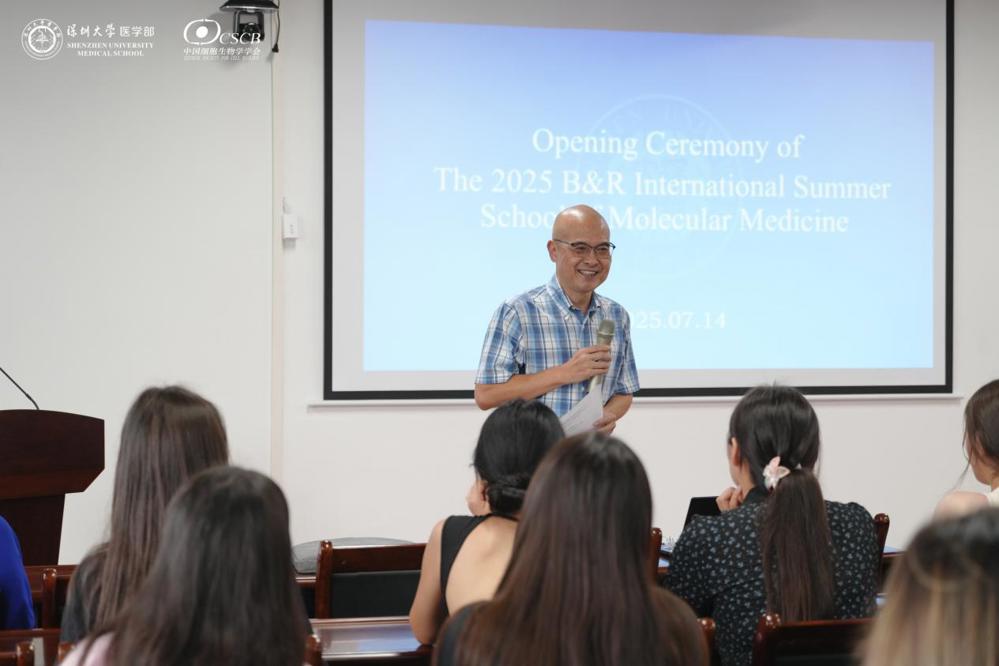
Professor Xingzhi Xu delivered a welcome speech
On the morning of July 14, Professor Xingzhi Xu, Executive Dean of Shenzhen University Medical School and board member of the Chinese Society for Cell Biology, opened the International Summer School with a welcome speech. He highlighted Shenzhen’s rapid rise over the past 40-plus years—its signature “Shenzhen speed”—and noted that Shenzhen University’s Medical School has grown in tandem, setting new records in research achievements. Professor Xu emphasized that the International Summer School creates an open, diverse, cutting-edge educational atmosphere by bringing together top experts and scholars in molecular medicine from around the world.
The inaugural sessions in 2023 and 2024 drew more than 60 students from Kazakhstan, Azerbaijan, Japan, the United States, Yemen, and other nations, and the program has since become one of Shenzhen University’s flagship international offerings. The 2025 curriculum spanned four academic tracks—genetic instability & disease; aging & metabolic disorders; infection & immunity; and nanomedicine—and featured lectures and lab sessions led by distinguished faculty, including Nobel Laureate Professor Barry J. Marshall, Director of the Marshall Biomedical Engineering Laboratory, and Professors Jie Liu and Huayan Yang.
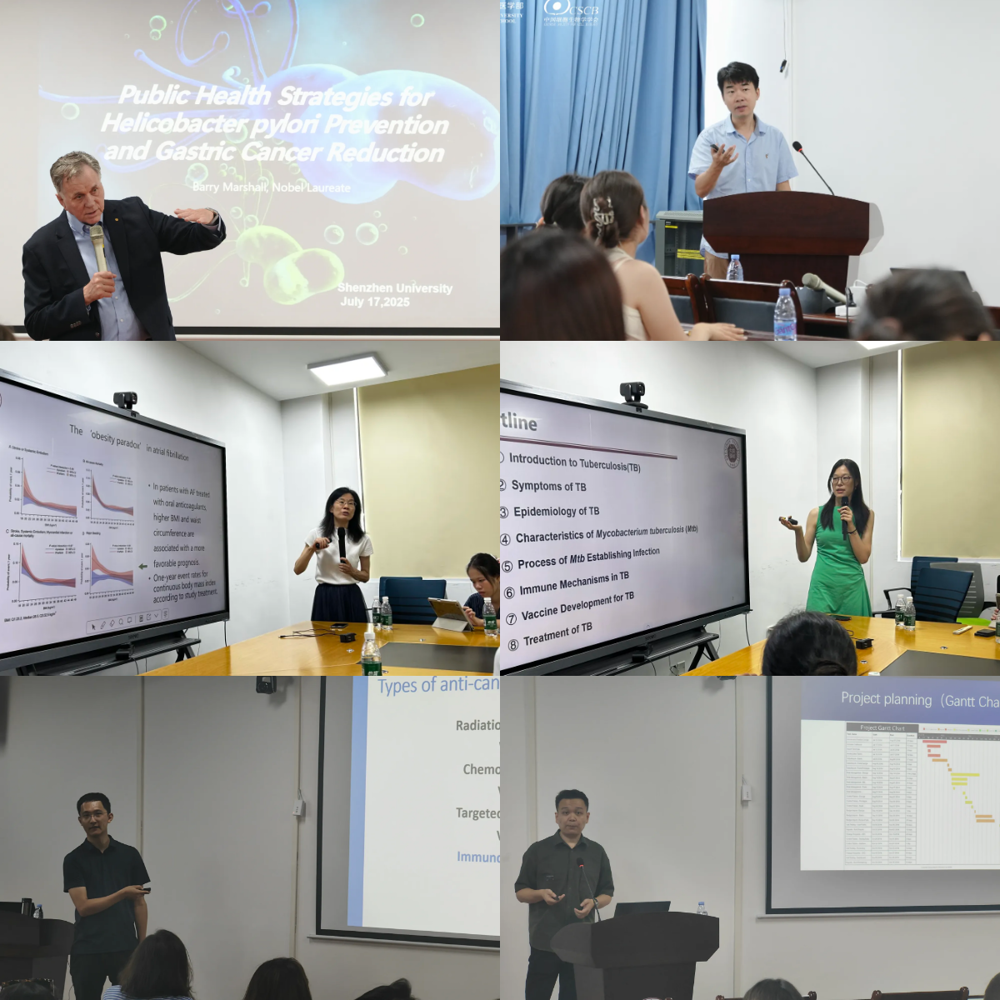
Snapshots of some of the engaging lectures that were delivered in English
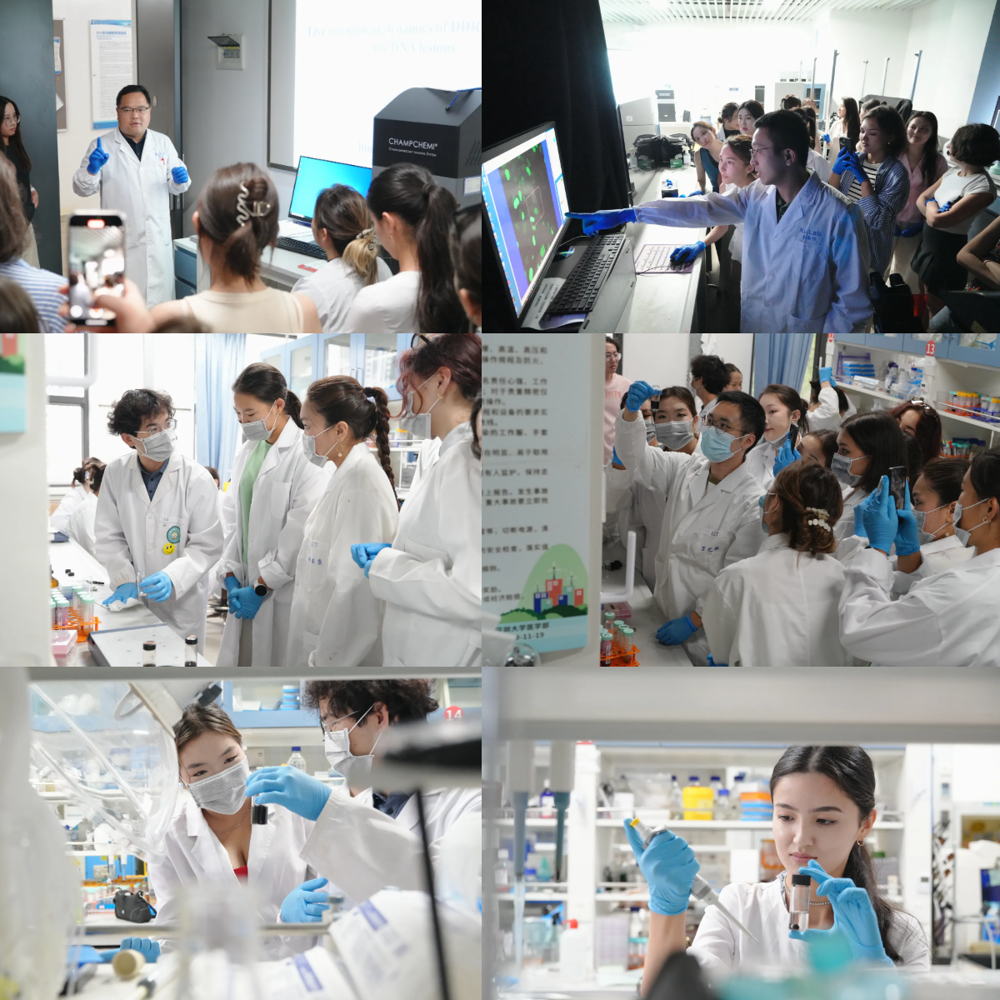
Participating students enjoyed laboratory tours and hands-on exposure to key technologies
In addition to academic activities, participants toured the SZU Yuehai Campus, Shenzhen Museum and Shenzhen Talent Park. The city’s vibrant growth and modern infrastructure left a deep impression on the students.
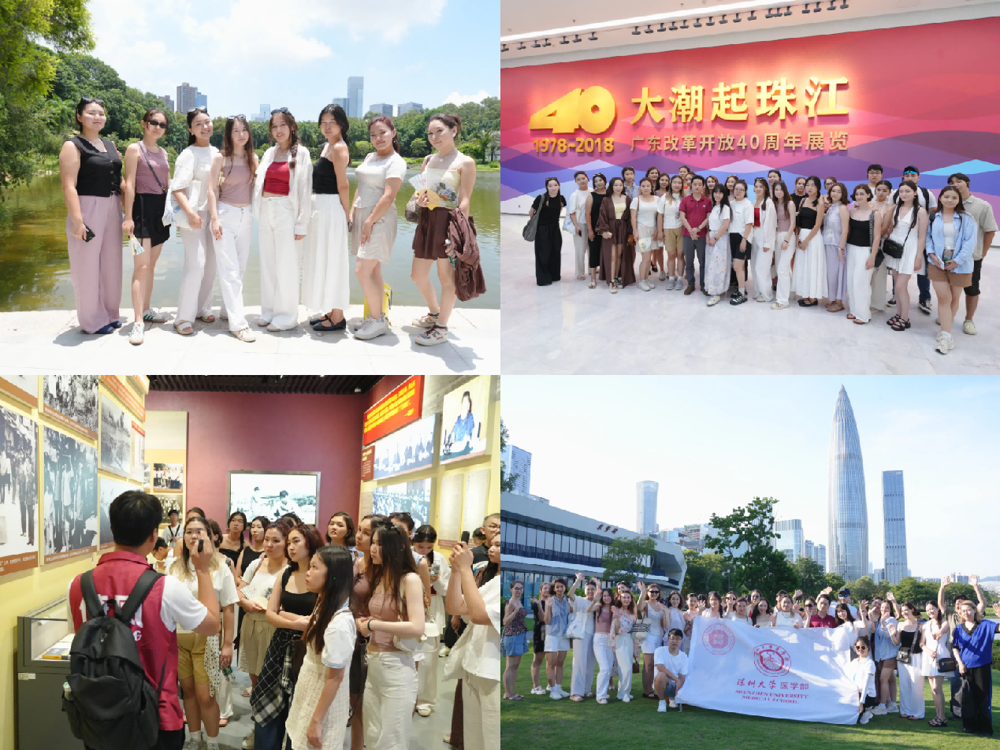
Images from the Yuehai campus of SZU, Shenzhen Museum and Shenzhen Talent Park
“Shenzhen is a very modern city. What impressed me most was the beautiful night view and the large shopping malls and other facilities. Shenzhen University has a high level of teaching facilities and research laboratory conditions, all of which are novel experiences for me.” shared Pham Anh Duong from Hanoi National University.
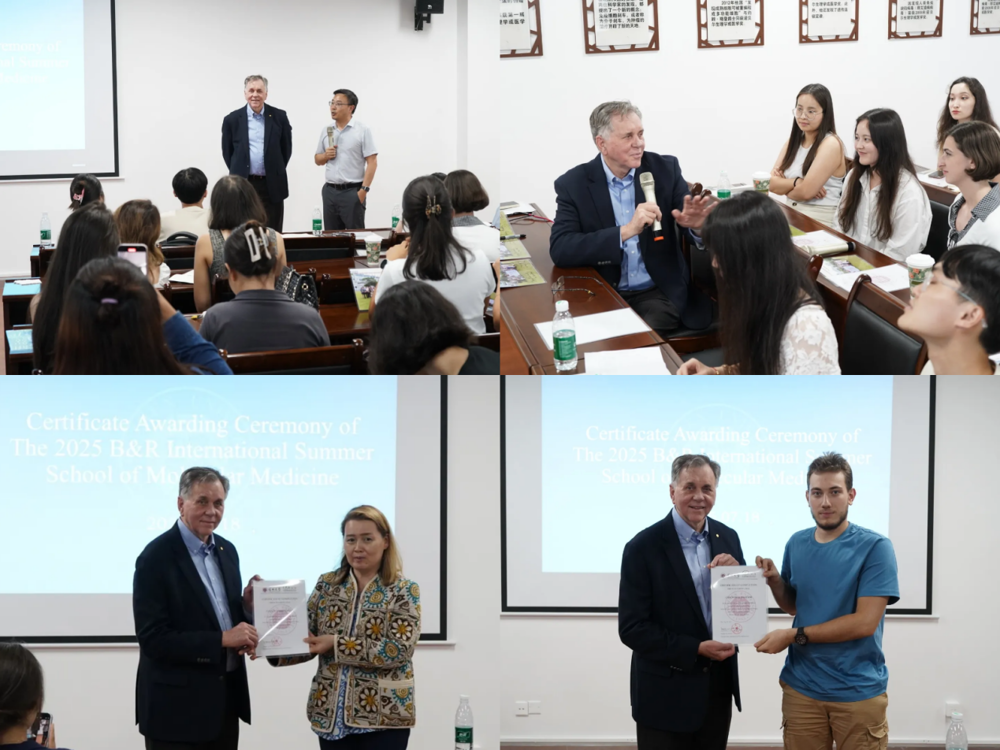
Closing ceremony
The closing ceremony on July 19, chaired by Professor Baohua Liu, Director of the School of Basic Medical Sciences, saw Professor Marshall present certificates to the participants. He praised the program for enhancing professional knowledge, fostering cultural exchange, and giving students a deeper understanding of Shenzhen’s dynamic academic environment.
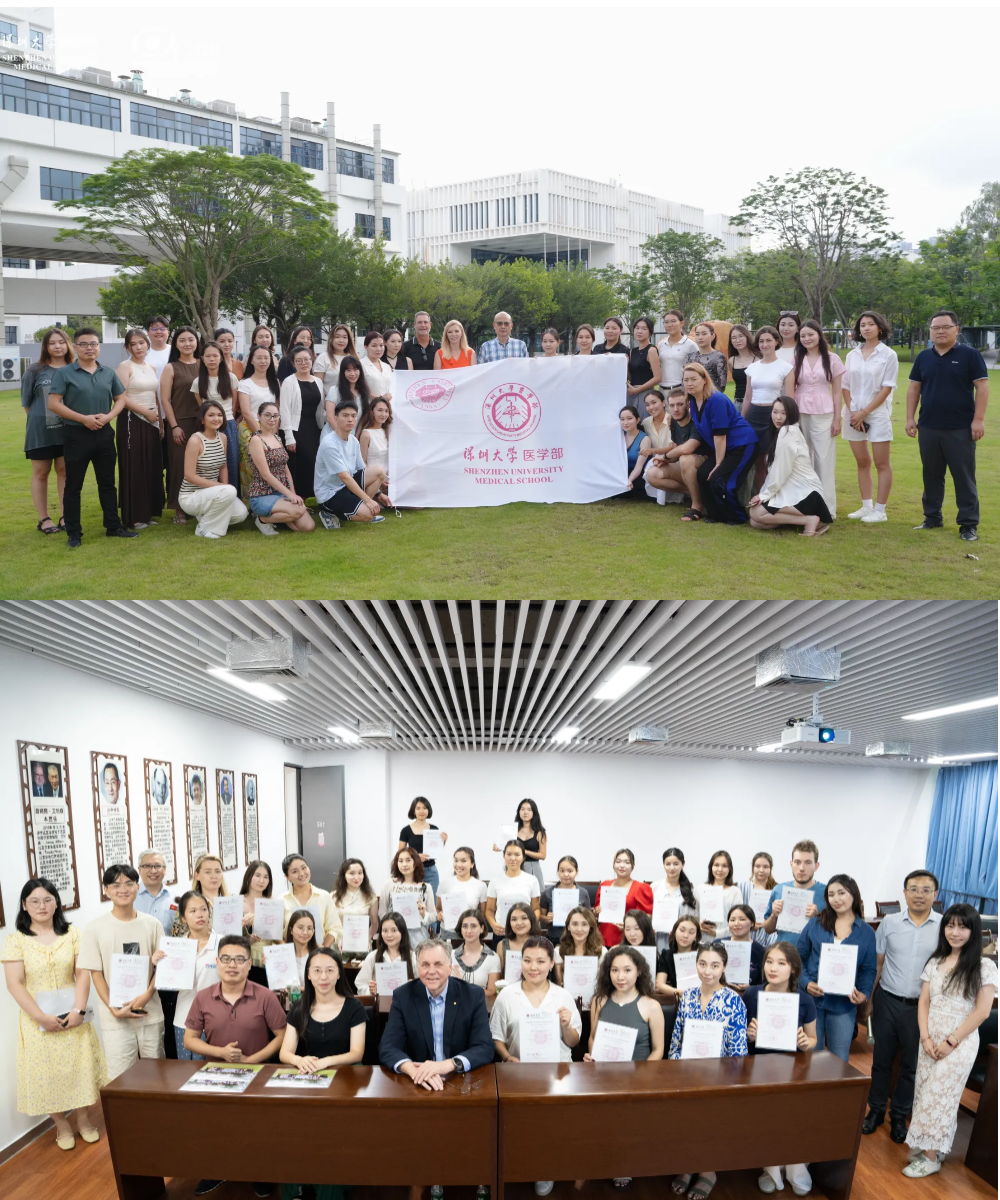
Group photos
Building on the salFMS platform, SZU Medical School will continue to promote an open, shared research environment; encourage Belt and Road research teams to jointly use experimental resources; and foster technological complementarity and resource sharing. It will establish stable cooperation mechanisms for training young scientists, postdoctoral fellows and graduate students, and conduct policy research on modernizing traditional medicine to meet the health needs of Belt and Road countries. These efforts will strengthen high-level academic exchange in medical research, support the Healthy China initiative, and enhance health and well-being across all participating nations.


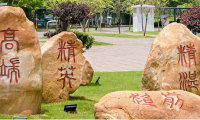
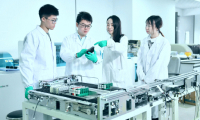
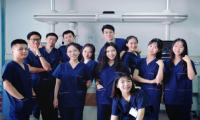
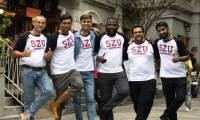


用户登录
还没有账号?
立即注册